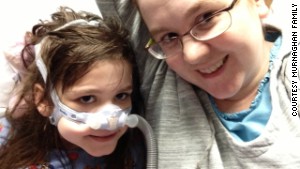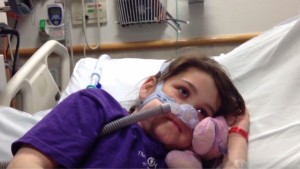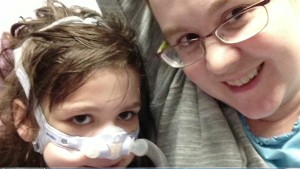A federal judge has ruled in favor of a 10-day restraining order that blocks U.S. Health and Human Services Secretary Kathleen Sebelius from applying a policy keeping children younger than 12 from being prioritized for available adult lung transplants, the judge’s clerk said.
The move by District Court Judge Michael Baylson of Philadelphia could improve the chances for Sarah Murnaghan, a 10-year-old Pennsylvania girl with cystic fibrosis, to get a new set of lungs.
The exact language in the order, which has yet to be signed, is still being worked out, Joanne Bryson told CNN.
Murnaghan could die within weeks without a transplant, her parents have said.
Janet Murnaghan, Sarah’s mother, told CNN the family is “thrilled … literally jumping for joy.”
 10-year-old fights for lung transplant
10-year-old fights for lung transplant
 Too young for adult lungs?
Too young for adult lungs?
 10-year-old Sarah needs lung transplant
10-year-old Sarah needs lung transplant
Her family said in a lawsuit that the policy keeps children younger than 12 from getting adult lung transplants and “violates the command of the National Organ Transplant Act of 1984.”
They argue that since the number of children’s lungs available through organ donation programs is so small, Sarah — and other pediatric patients like her — should be added to the list of people waiting for adult lungs, prioritized by severity of their illnesses.
As it currently stands, every adult on the list would first have to turn down a pair of lungs before it could be offered to someone under 12.
According to the United Network for Organ Sharing, just five children received lung transplants in the first three months of the year and 72 were on the waiting list.
Two days ago, the Murnaghans asked U.S. Health and Human Services Secretary Kathleen Sebelius to change the rules. She has previously told the family that she doesn’t have the authority to intervene in a particular case, but she also called for the policy review. Any change could take up to two years.
Several lawmakers have urged Sebelius to act.
Pennsylvania Republican Sen. Pat Toomey and Rep. Patrick Meehan co-signed a letter to the secretary saying in part, “You have the ability and authority to intervene to allow for Sarah and other children under the age of 12 to become eligible for adult organs.”
They asked that Sebelius “direct OPTN (the Organ Procurement and Transplantation Network) to conduct an experimental variance” and that an example in Murnaghan’s case would “help better inform the medical community’s understanding of how these transplants work in pediatric settings.”
Sarah is at the top of the list for any pediatric lungs that may become available for transplant in her six-state region.
The Philadelphia girl has been waiting 18 months for another pair of lungs as her ability to breathe has rapidly deteriorated. Adult lungs are far more available than lungs from children, and doctors believe modified adult lungs might save the girl’s life.






